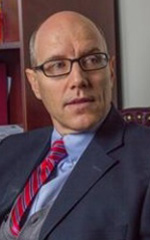Williamson County commissioners hold private meetings to interview school board replacement
Two Williamson County commissioners are holding private meetings with candidates to decide who should fill an open position on the Williamson County School Board, but the county commission attorney says their meetings do not violate the Open Meetings Act, according to two stories by media outlets.
The Tennessean: Williamson Schools candidate raises transparency concerns
Franklin Home Page: Opinions vary on transparency of school board candidate vetting
The two commissioners, Kathy Danner and Gregg Lawrence, are responsible for jointly deciding who should fill the remainder of the term of a board member who is leaving. The practice in the past has been that the two commissioners from the district of the vacant seat make the nomination and the county commissioners vote to accept it at a full meeting.
County commission attorney Robert Cook said the two commissioners “could narrow the list to one” without violating the Open Meetings Act, reported Jessica Pace with the Franklin Home Page.
In an email to Tennessean reporter Melanie Balakit, Cook said: “Two or members of a governing body may meet to gather information and ask questions without violating the Sunshine Law as long as the members do not deliberate toward a decision or make a decision on public business.”
He did not explain how they could jointly narrow the list to one selection without discussion or deliberation between the two and told The Tennessean that “he is still trying to formulate an opinion on how the commissioners can select a candidate without violating the Open Meetings Act.”
Below is an excerpt from The Tennessean story. The story quotes TCOG and also links to a study about the News Sentinel v. Knox County Commission case in 2007 in which county commissioners were found to violate the Open Meetings Act when they met privately to decide who to nominate and select as their replacements because of term limits.
From The Tennessean:
Cook referenced a court case — Johnston v. Metro. Gov’t of Nashville and Davidson County — to back up his opinion. The court ruled that council members gathering in a room for the purpose of obtaining information and asking questions did not constitute a meeting within the meaning of the Open Meetings Act, Cook wrote.
Deborah Fisher, executive director for the Tennessee Coalition for Open Government, said the candidate interviews should be public.
“Why is there a need for secrecy, especially for appointing someone to fill a public office?” Fisher said.
“If two commissioners are going to bring a ‘joint nomination’ to the full county commission, the very act of jointly discussing and deciding a recommendation is deliberation under the Open Meetings Act,” Fisher said.
Fisher said any meeting where commissioners deliberate on who to recommend to the full county commission should follow the Open Meetings Act — public notice should be given, the public should be allowed to attend and minutes should be recorded.
Fisher also said she didn’t find the Johnston case relevant.
Fisher instead referenced the 2008 case, Knoxville News Sentinel v. Knox County Commission. The Knoxville News Sentinel sued the Knox County Commission for meeting privately to decide who would fill open county commission seats. The judge found the commissioners in violation of the Open Meetings Act.
Interim school board candidate and first interviewee Jane McGrath said Danner and Lawrence did not deliberate when they interviewed her. McGrath said Danner and Lawrence asked their questions separately. She said Danner and Lawrence asked the typical interview questions, like why she wanted the position and why she felt she was the best candidate.
Cook said the commissioners will not record or take written notes of the interviews. He also said the commissioners will not write down interview questions.
When asked if he could remember seven interviews that last about an hour each over the course of two months without taking any notes, Lawrence said yes.
Cook also said he is still trying to formulate an opinion on how the commissioners can select a candidate without violating the Open Meetings Act. Lawrence said he and Danner have not considered setting a public meeting for when they deliberate on selecting one candidate and said they will follow Cook’s guidance. He also said they’re waiting on Cook’s guidance to see if they can or will share interview observations with commissioners prior to the September meeting.
“I just want everybody to have a full, 360 view of the candidates. … There’s only so much I can present about myself in a resume or letter of interest,” McGraw said. Each candidate’s resume and letter of interest is public record and available from the county mayor’s office.
McGraw said multiple county commissioners personally expressed concern to her about the private interviews. McGraw declined to say how many or who expressed transparency concerns.






